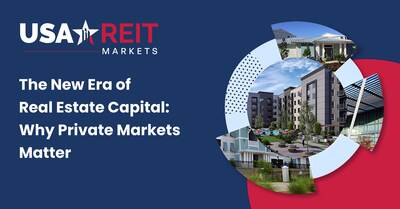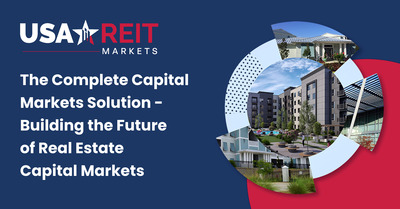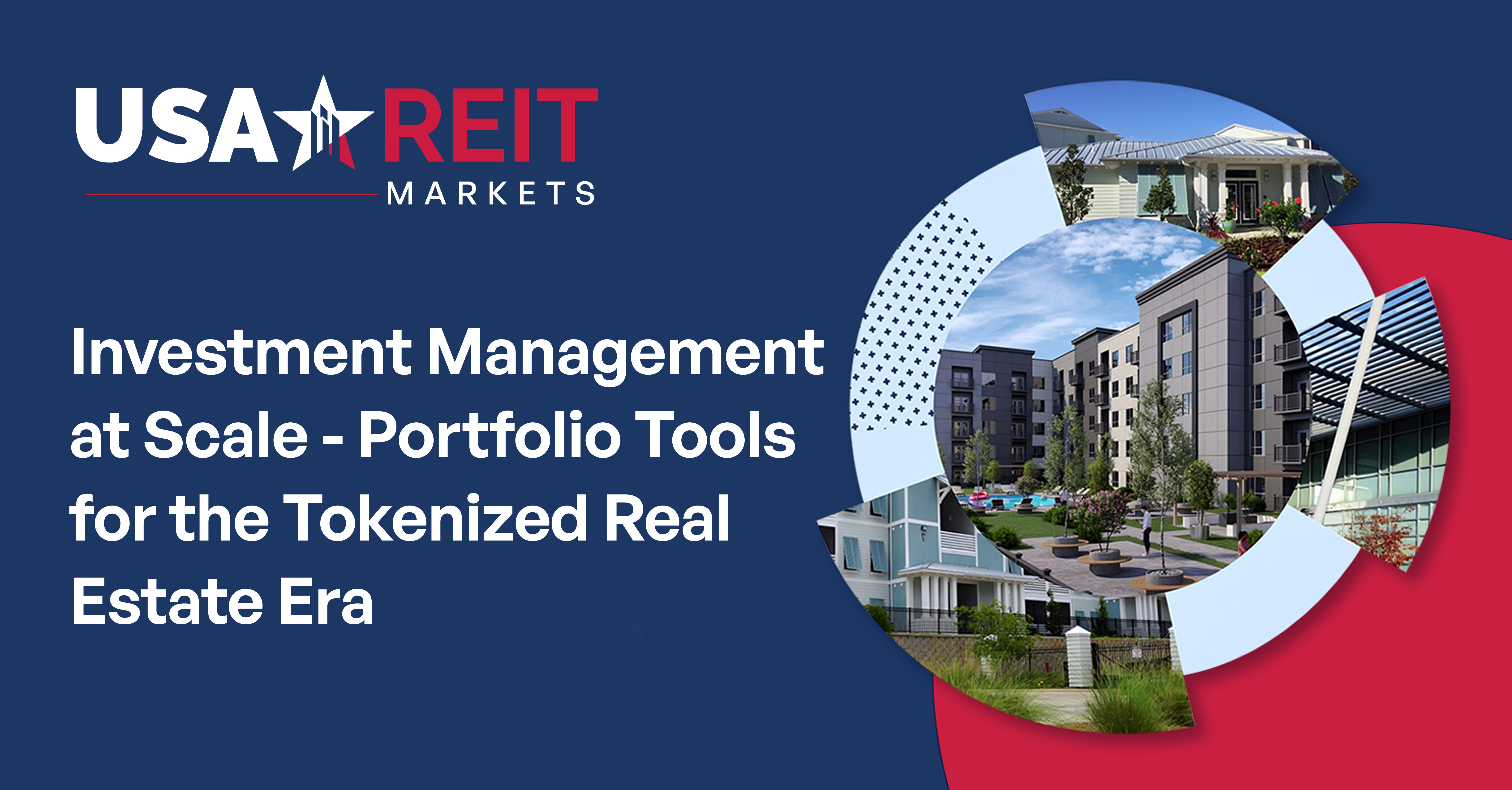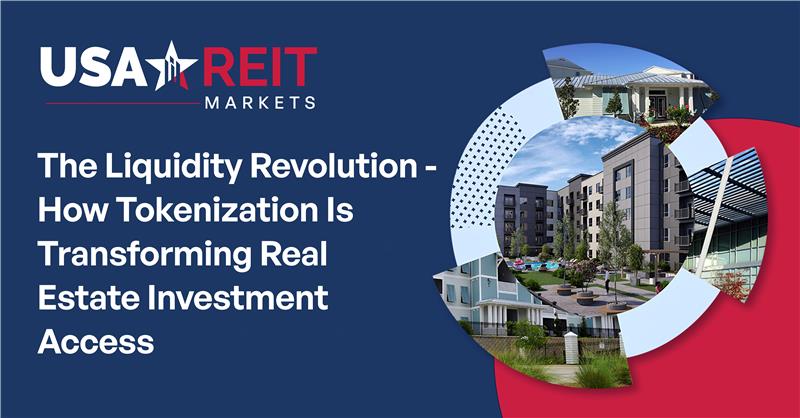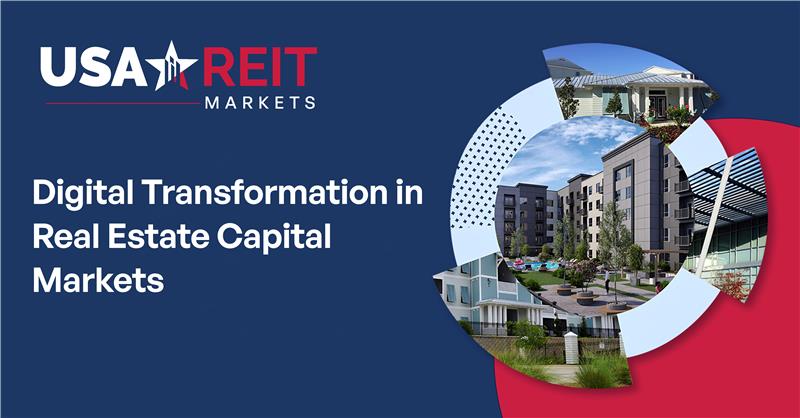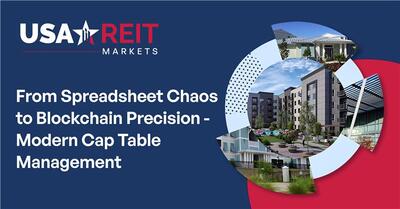Blockchain Innovation Beyond the Hype - Practical Solutions for Real Estate's Biggest Challenges
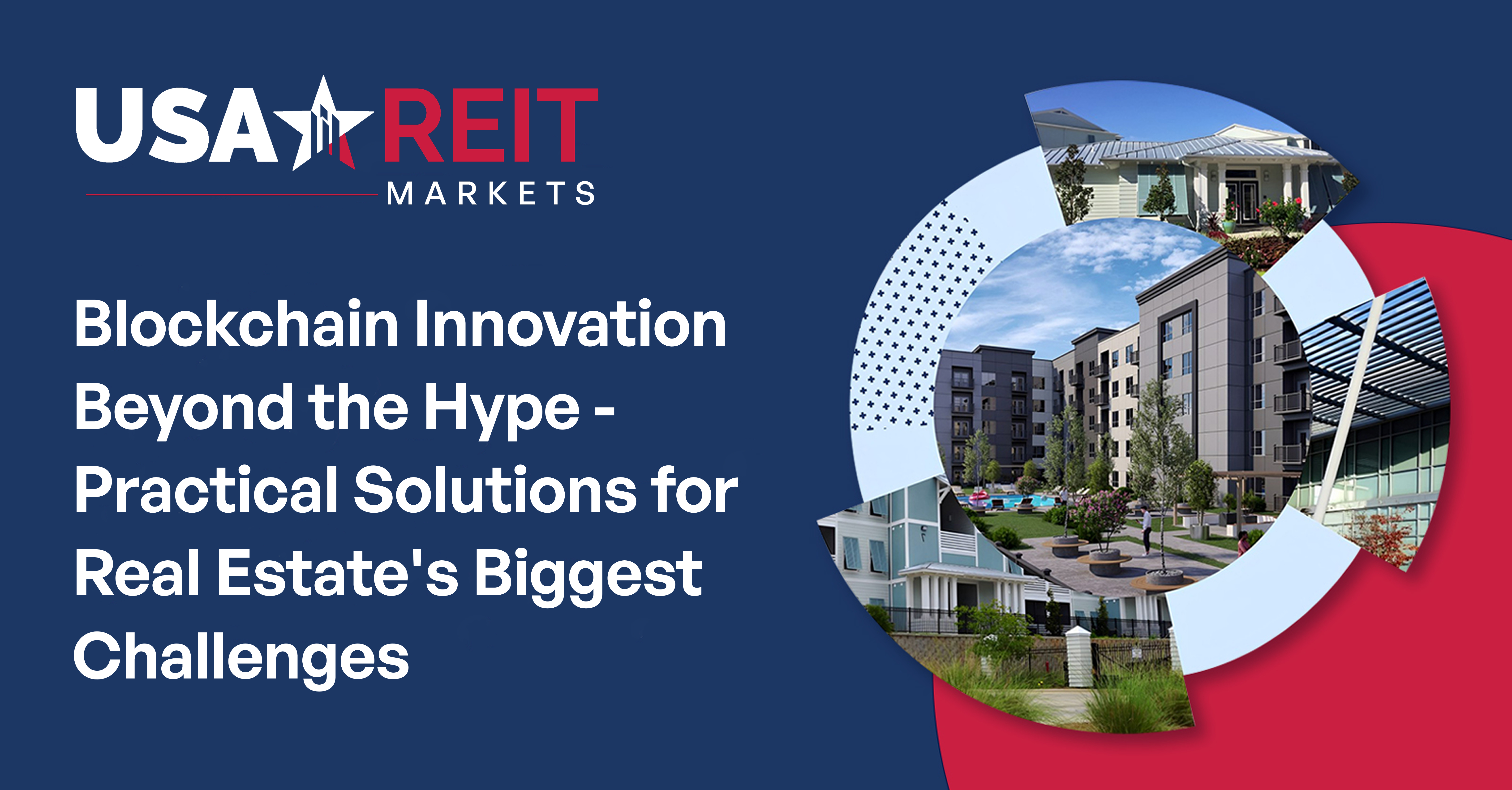
While blockchain technology has generated significant discussion across industries, its practical applications in real estate are moving beyond theoretical concepts to address fundamental market inefficiencies. This week, we explore how blockchain technology can potentially solve real estate's most persistent challenges—from transparency and fractional ownership to automated compliance and settlement processes.
USA REIT Markets is developing blockchain-enabled capabilities within a comprehensive tokenization platform designed to address these market needs while maintaining full regulatory compliance with SEC and FINRA requirements.
Understanding Blockchain's Real Estate Applications
Blockchain technology in real estate has evolved from experimental concepts to practical infrastructure supporting real transaction value. The technology's core capabilities—immutable record-keeping, smart contract automation, and decentralized verification—directly address longstanding inefficiencies in traditional real estate markets.
According to PwC's Global Blockchain Survey 2024, 73% of real estate executives now view blockchain as essential infrastructure rather than experimental technology, representing a 45% increase from 2022.¹ This shift reflects growing recognition that blockchain's transparent, secure, and automated capabilities can potentially streamline processes that currently require extensive manual intervention.
Addressing Fundamental Market Challenges
Transparency and Information Access
Traditional real estate transactions often suffer from information asymmetries, where participants lack complete visibility into property histories, ownership structures, and transaction details. Blockchain technology can create immutable transaction records that provide comprehensive transparency throughout the investment lifecycle.
Potential Benefits:
- Complete transaction history visibility for all stakeholders
- Reduced due diligence costs and timeframes
- Enhanced trust through verifiable record-keeping
- Automated audit trails for regulatory compliance
Fractional Ownership Innovation
One of blockchain's most significant applications involves enabling fractional ownership through tokenization. By representing property ownership as digital tokens, investors may access precise fractions of high-value commercial properties previously available only to large institutions.
Market Impact Potential:
- Democratized access to commercial real estate investments
- Enhanced portfolio diversification capabilities through smaller minimum investments
- Improved liquidity through tradeable ownership fractions
- Reduced barriers to real estate market participation
Cross-Border Investment Facilitation
International real estate investment traditionally requires complex legal structures and extensive compliance processes. Blockchain technology can potentially streamline cross-border transactions through standardized protocols that work across jurisdictions while maintaining regulatory compliance.
Possible Advantages:
- Automated compliance checks for international investors
- Standardized documentation and verification processes
- Streamlined settlement and currency conversion capabilities
- Reduced administrative complexity for global participation
Smart contracts represent one of blockchain's most practical real estate applications, potentially automating routine processes that currently require manual intervention. These self-executing contracts can automatically perform specified actions when predetermined conditions are met.
Automated Distribution Management
Smart contract systems may automatically calculate and distribute investor returns based on predetermined formulas embedded in the blockchain. When rental income or sale proceeds are received, smart contracts could automatically calculate proportional shares and initiate distributions without manual intervention.
Potential Benefits:
- Elimination of calculation errors and processing delays
- Reduced administrative costs and operational overhead
- Consistent distribution timing and transparent execution
- Real-time notification and reporting capabilities
Smart contracts can potentially automate regulatory filings, investor reports, and compliance documentation based on transaction data recorded on the blockchain. This may reduce administrative burden while ensuring consistent compliance with SEC, FINRA, and state regulatory requirements.
Possible Applications:
- Automated generation of regulatory filings and investor reports
- Real-time compliance monitoring and verification
- Streamlined investor accreditation and verification processes
- Integrated tax reporting and documentation
Recent market analysis demonstrates blockchain's growing impact on real estate investment:
Transaction Growth: Blockchain-enabled real estate transactions reached $3.7 billion in 2024, representing 312% year-over-year growth according to the Real Estate Technology Report 2024.
Cost Efficiency: Studies suggest blockchain automation can reduce transaction costs by an average of 35% compared to traditional real estate investment processes, according to Deloitte's Blockchain in Real Estate Study.
Settlement Speed: Blockchain-based property transactions may settle in an average of 3.2 days compared to 45-60 days for traditional processes, based on research from the MIT Real Estate Innovation Lab.
Market Access: Fractional ownership through blockchain technology has potentially enabled 78% more investors to access commercial real estate markets, according to the Cambridge Centre for Alternative Finance.
Consider a theoretical family office managing significant assets seeking to diversify with commercial real estate investments while maintaining operational flexibility.
The Challenge: Traditional real estate investment structures often lack:
- Precise fractional ownership capabilities for optimal allocation
- Real-time liquidity options for tactical portfolio management
- Transparent performance reporting and risk metrics
- Streamlined processes for international exposure
Blockchain Platform Solution: Modern tokenization platforms may enable:
Precise Allocation Control: Fractional ownership tokens could allow exact percentage ownership of high-value properties, enabling sophisticated portfolio optimization.
Enhanced Liquidity: Integrated trading capabilities through regulated ATS systems may enable rapid portfolio rebalancing compared to traditional methods.
Transparent Reporting: Blockchain-based performance tracking could provide real-time visibility into property-level returns and comprehensive analytics.
Simplified International Access: Tokenized structures may automatically handle currency considerations, regulatory compliance, and documentation requirements.
Platform Development and Strategic Positioning
USA REIT Markets is developing comprehensive blockchain capabilities within our tokenization platform to address these market opportunities while maintaining full regulatory compliance.
Technology Integration Focus
Institutional-Grade Infrastructure: Platform capabilities are designed to meet the sophisticated requirements of institutional investors while providing accessibility for qualified individual participants.
Partnership Ecosystem: Strategic partnerships with technology providers, compliance vendors, and financial institutions ensure comprehensive platform capabilities and regulatory adherence.
Educational and Market Development
Regulatory Clarity: Our platform development emphasizes regulatory compliance and transparency, contributing to industry standards and best practices for tokenized real estate investments.
As blockchain technology continues maturing, early adopters in real estate may establish competitive advantages in areas such as:
- Enhanced Operational Efficiency: Automated processes that reduce costs and improve execution speed
- Improved Market Access: Fractional ownership capabilities that democratize investment opportunities
- Superior Transparency: Immutable record-keeping that builds trust and reduces due diligence requirements
- Regulatory Innovation: Compliance-integrated solutions that meet evolving regulatory standards
The convergence of blockchain technology with regulated market infrastructure represents a significant opportunity to capture innovation benefits while maintaining institutional-grade compliance and security.
Understanding how blockchain technology may enhance capital formation:
- Learn about streamlined investor onboarding and verification processes
- Explore automated distribution and cap table management capabilities
- Discover enhanced investor communication and reporting tools
- Understand compliance integration and regulatory benefits
Exploring blockchain-enabled investment opportunities:
- Learn about fractional ownership and portfolio diversification benefits
- Understand enhanced liquidity options through integrated trading systems
- Discover transparent reporting and performance tracking capabilities
- Explore automated distribution and tax reporting features
Contact USA REIT Markets to learn more about our platform development and educational resources for the evolving tokenized real estate market.
Latest Articles

